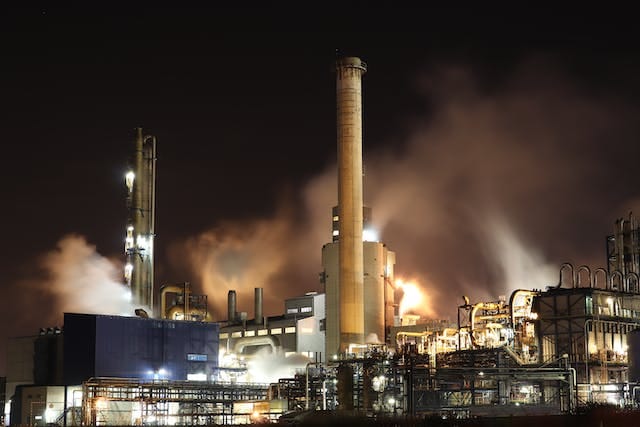Obtaining African oil without Western financing
Several strategies exist for obtaining African oil without relying on Western financing. These approaches might involve partnerships with local governments or private entities within Africa, seeking funding from non-Western sources such as Asian or Middle Eastern investors

Beginning in western Uganda, the East African Crude Oil Pipeline has been planned to travel 1,443km through various natural habitats, including farms, forests and rivers, until it reaches the Tanzanian shore. However, many banks have already declined to contribute to the required $2.4bn in debt, and shareholders led by the French oil giant Total Energies are now looking to Chinese firms for assistance. In response to this, activists in six African and European countries staged protests outside Chinese banks, embassies and insurers on the 20th of November.

The struggle serves as a warning of what is to come as Western money-lenders contemplate fossil fuels. Some banks, such as Societe Generale, have stated that they will no longer fund new oil and gas ventures. Furthermore, G7 nations have vowed to decrease their assistance for foreign extraction, albeit with some exceptions and exceptions. "We must accept that one cannot just go to the City or Mayfair and get something done," comments Rahul Dhir, the CEO of Tullow Oil, which mainly gets its barrels from Ghana. "You'll need to go to Cairo, Lagos or Beijing."
As of now, drilling is still ongoing in Africa. Politicians have proposed that money earned from this activity could finance development, despite the fact that African people are bearing the brunt of the effects of climate change and often oil and gas production leads to bribery instead of wealth. According Wood Mackenzie, a consulting firm, nearly $300bn is anticipated to be poured into the extraction of African oil and gas within the next 10 years. Companies have three choices in order to fund this investment: they can source local capital, appeal to traders, or orient their focus toward the East.
African financiers, just like the politicians of the continent, are still positive about fossil fuel energy. In South Africa, Standard Bank is increasing their oil and gas investments and providing financial advice for the East African pipeline. The African Export-Import Bank, based in Cairo, is working with oil-producing countries to introduce an "African Energy Bank", which will fill in the spaces created by the usual lenders. Ayodeji Dawodu of BancTrust, an investment bank, states that such African multilaterals have helped maintain the Nigerian oil sector stable by taking on financial risks that native lenders are hesitant to.
Financing for current initiatives is also sourced from trading organisations such as Glencore and Vitol, who offer a multi-year loan in exchange for future barrels. According to one financier, "Our goal is not to supplant banks, but rather to acquire more barrels to trade." Prepayments of this type are preferred by medium-sized producers and national oil companies, particularly since they can be arranged quickly. However, difficulties can arise as well. Troubles with debt in the Republic of Congo and Chad have been linked to opaque agreements with oil traders that have been difficult to meet.

The third choice to consider is looking toward the East. Saudi Aramco has invested in Nigerian oil refineries and the Islamic Development Bank has promised $100 million for a pipeline in East Africa. The most notable is China, with a background of resource-backed financing, usually implemented by its state-owned financial institutions. Even though the Chinese economy is going through a slump which has had an effect on foreign loans, Chinese firms are now investing more in African oil and gas than ever before.
Western investment in Africa is not entirely receding. Oil companies are still allocating funds for major projects like the Namibia oilfields, which are the largest of their kind in the southern part of the Sahara. Gas is another area where capital is still being made available, considering its reputation as a cleaner alternative to oil. Banks, while wary of investing in particular projects, are not as hesitant when it comes to general finance purposes such as corporate loans and bond issuances. According to BankTrack, Milieudefensie, and Oil Change International, Western lenders provided two-thirds of fossil fuel corporate finance in Africa between 2016 and 2021.
Notwithstanding, the cost of capital is increasing. When associated with lacklustre demand, this could endanger resources in countries such as Angola and Nigeria. Getting hold of resources in Africa is expensive and carbon-intensive. According to McKinsey, a consultancy firm, if prosperous countries are true to their green pledges, up to 60% of the continent's production could be rendered non-competitive by 2040. Oil is responsible for approximately 60% of the fiscal revenues of the countries that export it; gas accounts for a growing proportion of the continent's electricity. African governments are protesting that they are being hurried into an energy transition as per someone else's plan.
Those seeking in-depth analysis of the most important stories in economics, finance and markets should consider signing up for Money Talks, our weekly newsletter that is exclusively for subscribers.




